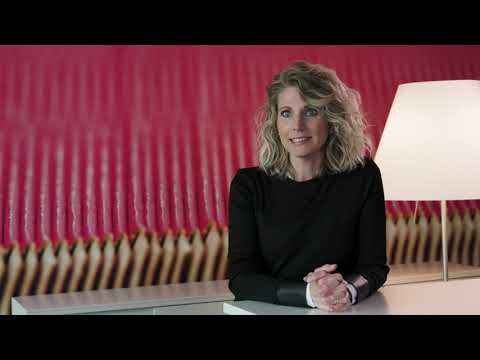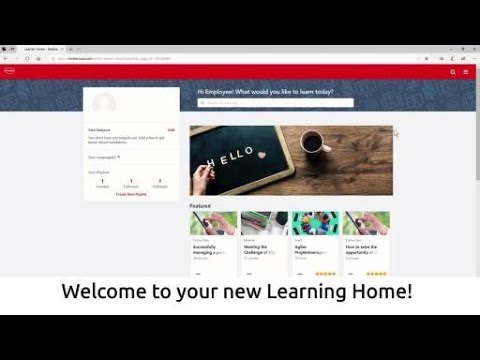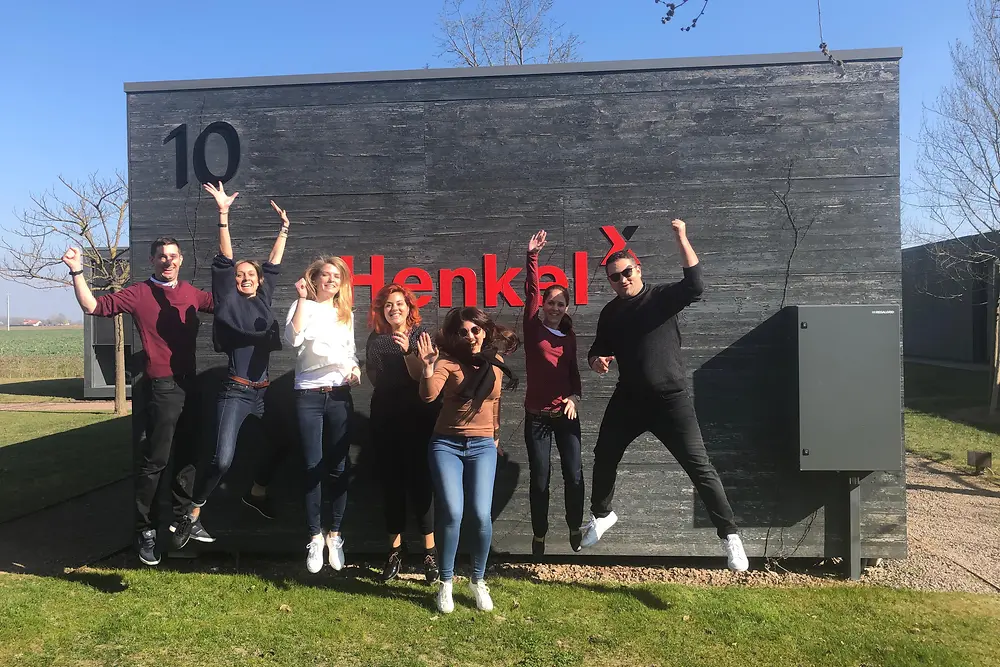Digital transformation: How we prepare our employees for the future

Henkel began evaluating the digital knowledge of its employees in 2018 and has drawn a lot of attention to this initiative. What is so special about Digital Upskilling?
Franziska Schatt: Lifelong learning is nothing new for Henkel. We already had an extensive range of training offers in place on the topics of digitalization, innovation and new technologies, based on both webinars and onsite workshops. What’s new here is that we developed a global, company-wide approach. With the global Digital Upskilling initiative, we are checking where we currently stand and whether we have the right training programs. There are a lot of them, but some have evolved over time based on intuition rather than data. Now, we are increasing the transparency of it all and assessing how digital we really are.
How do you determine whether or not employees worldwide are up to speed? What do they need to know in order to do well in the future?
We believe that going forward, many roles are going to change along with today’s technologies and that new jobs will emerge. We want to go along with this development. That’s why we’re not waiting a few years, when it’s clear that an employee suddenly needs to develop certain skills. Instead, we’re giving all of them the knowledge they will need to do their job well in the future. The evaluation shows us what we need to focus on in the form of a quiz. With Digital BaseFit, we are assessing an employees’ basic understanding of topics that we deal with on a daily basis, such as Industry 4.0 or Sharepoint, for example. With Digital ExpertFit, we tackle the skills that will become important in the next three to five years for a certain “family” of jobs. For instance, our colleagues in Marketing have different needs from those who work in our Finance department. Many of these skills aren’t applicable yet – but we want to show employees the direction in which their field is evolving.
Predicting what will be relevant for employees in Logistics, Supply Chain Management or Marketing three to five years from now seems ambitious. How did you go about it?
To define the market-relevant skills for individual job categories, we worked with a consulting firm. It was important for us to get an outsider’s perspective. Our colleagues in the different departments still got involved at an early stage, to check the proposals and make adjustments as needed. They could directly determine which subjects were pertinent to their field of work and which were not. We didn’t want to just present a finished program for our colleagues to use – rather we wanted to have them on board from the start.
Self-assessment also requires trust and a certain amount of courage. Did you have to work hard to convince and motivate people to participate?
No, we were actually surprised by employees’ positive attitude towards the project. They understand that it’s a great offer, where Henkel is investing a lot of time and resources. Thanks to the high level of interest it attracted, the initiative almost developed by itself. What was also beneficial during this process was that this wasn’t purely an HR-driven program, but rather a team effort involving the different departments of the company. It was important that everyone felt heard. Of course, everything is strictly voluntary. However, we communicate that the evaluation provides real added value to each individual person. The outcomes of both approaches (Digital BaseFit and Digital ExpertFit) will show us which digital abilities our employees already have. From there, we offer further trainings that fit those skills.
“We believe that upskilling implies a cultural transformation – and that doesn’t happen overnight. Our learning journey has only just begun.”
How does learning on the platform work for employees worldwide?
It’s hard to overlook that the working world is changing from the ground up. Even learning is changing, which is why we have introduced a new learning platform. BaseFit and ExpertFit are also available on this new platform, next to the other trainings in our catalogue. All of the online courses and videos are cloud-based and accessible everywhere, at any time – not just in the workplace, but also on the go or at home. That way, I can decide for myself when and where I would like to learn. The platform offers a user experience close to what we all know from our everyday use of other media, like streaming portals. It’s very intuitive and playful. For example, I can see what is recommended on my personal learning path, what other people are watching, and which content is new or particularly popular. In addition to our own material, we have integrated external content such as TED talks. Users can also discuss the subjects, write comments and rate individual elements, just like they do on social media.
What are the next steps?
The digital requirements are changing incredibly fast. We now have a starting point from which we will need to continuously adapt and change. At regular intervals, we will re-evaluate the current state of affairs and adjust our program accordingly. We believe that upskilling also implies a cultural transformation – and that doesn’t happen overnight. Our learning journey has only just begun.










